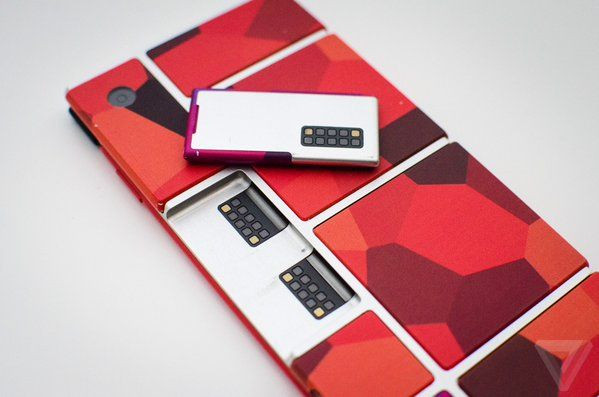Google Cancels Project Ara Modular Smartphone; May Possibly License Technology Instead

Google has confirmed that it has suspended its plans to release Project Ara, the company’s attempt at a modular smartphone. Although the smartphone itself won’t be reaching consumers, it looks like the technology used during its development may appear in future products.
The cancellation of the Project Ara smartphone was first reported by Reuters which cited two unnamed sources that provided the news outlet with the information. The sources claimed that the company decided to abandon development on the device “to streamline the company’s hardware efforts.”
Although Project Ara won’t be released to consumers, Google is said to be partnering with other manufacturers to bring the handset’s technology to the market. It’s speculated that Google may simply provide licensing agreements to manufacturers.
Later that same day, a Google spokesperson confirmed to VentureBeat that Project Ara has been cancelled. However, the spokesperson declined to comment any further and didn’t confirm plans of partnering with manufacturers or making licensing agreements.
Project Ara was first conceptualized in 2012 and actual development proceeded the following year. The smartphone featured a completely modular design where users would be able to replace almost all of its parts of its hardware including the processor, memory, battery, display, speakers and camera.
Each individual modules can be attached to the Project Ara through electropermanent magnets. The idea behind the smartphone was to enable users to upgrade the smartphone over time eliminating the necessity to buy a new one almost every year.
The smartphone was originally being developed under Motorola, a subsidiary owned by Google at the time. When Lenovo bought Motorola in 2014, Project Ara was brought under Android, and then became independent shortly thereafter under Google’s Advanced Technology and Projects group.
The developer edition of the Project Ara was supposed to be released this fall with a planned mass consumer release sometime in 2017. The cancellation of the project seems to be really disappointing considering that modular smartphones have garnered much attention recently especially with the recent release of the LG G5 and the Moto Z.
© Copyright IBTimes 2024. All rights reserved.





















